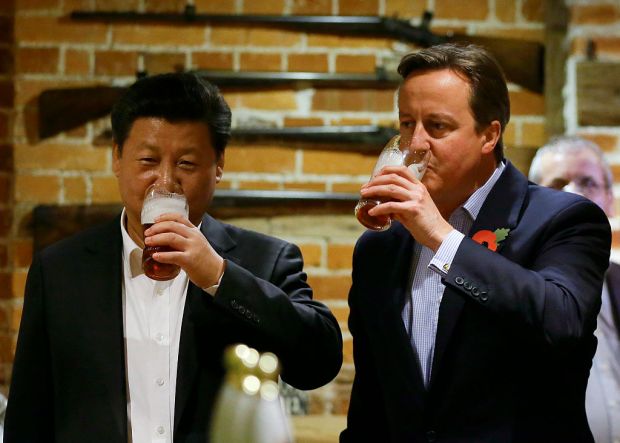It has been almost 45 years since Tam Dalyell first asked the West Lothian Question. It is a damning indictment of devolutionary unionists that they are still flailing for an answer.
Dalyell, a Scottish Labour MP with the uncommon foresight and courage to oppose his party’s embrace of devolution, first posed it during the parliamentary debates that teed up the first referendums in 1979:
‘For how long will English constituencies and English Honourable members tolerate … at least 119 Honourable Members from Scotland, Wales and Northern Ireland exercising an important, and probably often decisive, effect on English politics while they themselves have no say in the same matters in Scotland, Wales and Northern Ireland?’
He asked it so often that Enoch Powell proposed the ‘West Lothian Question’ as a shorthand, naming it for Dalyell’s constituency.
Labour’s answer, which typified the high-handed and short-sighted approach to constitutional reform adopted by Tony Blair, Gordon Brown, and Donald Dewar, was ‘stop asking it’. The Conservatives’, eventually, was English Votes for English Laws (EVEL), which Michael Gove is apparently preparing to repeal.
But if he wishes to abandon the Tory answer, Boris Johnson must insist that he provides another. A return to Labour’s unsustainable evasion will not do.
This is not to say that EVEL is perfect. Far from it. Nor that David Cameron’s decision to introduce ‘the voice of England’ in the immediate aftermath of the 2014 referendum wasn’t an appalling error of judgement. It was.
However, that doesn’t mean that the case for abolishing it stacks up.
First off, Gove cites the conduct of Parliament during the Covid-19 pandemic, during which the EVEL procedure was suspended, as evidence that it isn’t necessary. But this has been an extraordinary period, both in political and procedural terms. One should not design institutional architecture, which will operate over the long term, to suit special circumstances.
Nor is it wise to give the SNP the opportunity to make mischief with English governance merely on the grounds that they have yet to do so. Remember they are not good-faith partners in the United Kingdom. They want it to fail, and will foul its operation if they can.
Speaking of contingent circumstances: New Labour enjoyed a comfortable national majority from 1997 until 2010, and since then we have had a series of Conservative-led governments with working practical majorities, with or without the help of other parties.
What happens if we ever end up with a national government that can only impose domestic legislation on England with the votes of Scottish, Welsh, and Northern Irish MPs? Set aside the actual injustice of it for a moment – will a Tory party that put Ed Miliband in Alex Salmond’s pocket hesitate to exploit it?
Critics, including some Scottish Conservatives, allege that EVEL created two classes of MP. This is false. Devolution did that, by creating a class of MP who could vote on broad swathes of legislation that would not govern their constituents. English Votes merely recognised that unhappy reality.
It thus created a belated, structural incentive against MPs outside England sticking to the devolutionary script and lazily demanding ‘more powers’ for Edinburgh and Cardiff. Yes, the mechanism ‘reduced the power and prestige of Scottish MPs’ at Westminster – but this was a fair trade for reducing the power and prestige of Westminster in Scottish constituencies.
The legitimacy of our shared British institutions is central to the defence of the Union. By ignoring the West Lothian Question, a generation of (largely but not exclusively) Labour MPs tried to defend their role in Parliament while abdicating their responsibility to defend Parliament’s role.
Proof of this virtue of EVEL is found in the speeches of the MPs who opposed it. What unionist could oppose Sir Gerald Kaufmann’s declaration that ‘I am not an ‘English’ MP: I am an MP of the United Kingdom of Great Britain and Northern Ireland’? Or fail to nod along as Welsh Labour MPs talked up the inter-connectedness of our country, and how affairs across the border in England affected their constituents?
But it is telling that those Welsh MPs fought harder to safeguard their role in English political life than in Welsh, and it would be unfortunate if abandoning EVEL let them return to bad habits.
It also remains deeply unfashionable to make the inter-dependency argument the other way.
Mark Drakeford’s new Programme for Government in Wales pledges to ‘champion the rights of the Senedd to legislate without interference in areas devolved to Wales’. There is no mention that this could involve the right to take control of passenger rail services that serve English stations, or the impact that Labour’s mismanagement of the Welsh NHS has on hospitals in places such as Shrewsbury.
Gove says that his view ‘is that the more we can make the House of Commons and Westminster institutions work for every part of the UK and every party in the UK, the better.’ It is a noble sentiment.
But for Parliament to work ‘for’ every part of the UK, it must work in every part of the UK. Scrapping EVEL ought, at minimum, to be partnered by an expansive and ambitious schedule of nationwide programmes authorised under the UK Internal Market Act (‘Ukima’).
Gove may not like Cameron’s solution to the West Lothian Question. But Tam’s ghost is still asking it. Either politicians must find a better answer, or future circumstances will force a worse one.<//>
Got something to add? Join the discussion and comment below.
Get 10 issues for just $10
Subscribe to The Spectator Australia today for the next 10 magazine issues, plus full online access, for just $10.




















Comments
Don't miss out
Join the conversation with other Spectator Australia readers. Subscribe to leave a comment.
SUBSCRIBEAlready a subscriber? Log in